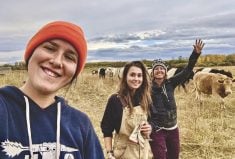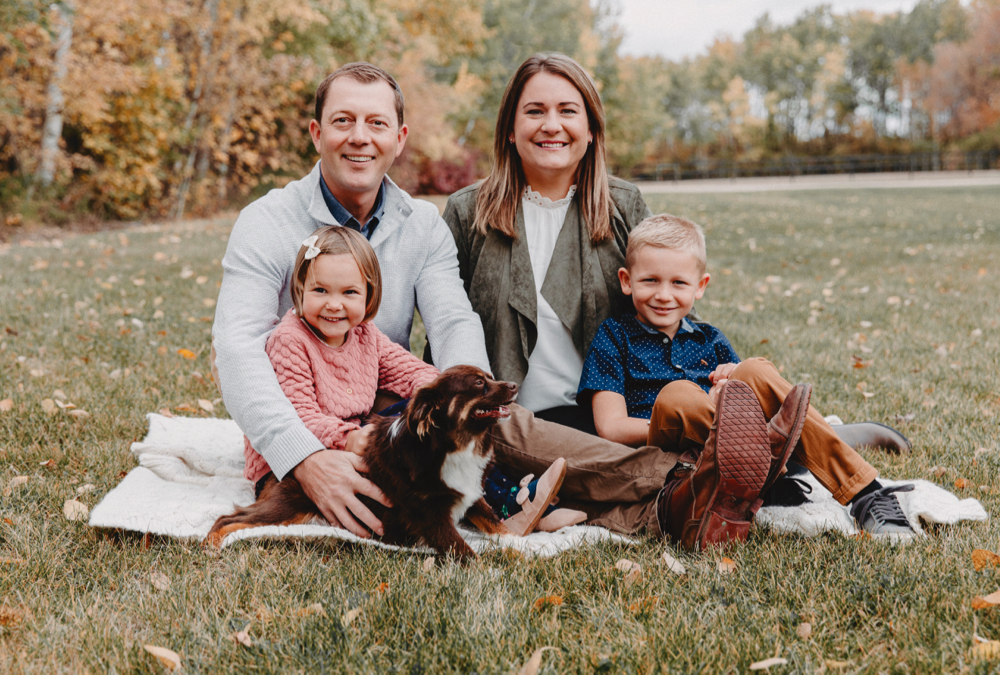Unfortunately for many of us, by the time wisdom finally catches up with us, we are already beginning to feel our age. There are just so many things to learn on the farm, and you only get so many chances to learn them. Every spring is different, every barn is different, every market is different.
But what if you were a young farmer smart enough to realize this? Could you do something to put the odds back in your favour?
Across Canada, more farmers are trying to do just that. There’s a notable and growing appetite for mentorship in agriculture, and seasoned farm managers are responding to their call.
Read Also

Sibling squeeze part 6: The emotional stakes of a family legacy
The final instalment in a six-part series exploring the challenges of sibling conflict and the effect it can have on…
But is it paying off? Based on the people we talked to, not only can it work for the young farmers, it actually works for the mentors too, helping them on their home farms as much as it’s helping the incoming generation.
The Canadian Cattlemen’s Association (CCA) witnessed this law of unintended benefits very quickly after it launched its Cattlemen’s Young Leaders program in 2010. What started as a pilot in Alberta went national in 2011, and by this August, a total of 84 producers between the ages of 18 and 35 will have graduated.
Jolene Noble, the program co-ordinator, is expecting 60 to 75 applications again this year, yet she still finds it humbling just to read about the individuals coming into their program, even before they ever meet face to face.
“It’s just unreal what some of these people are doing at such a young age,” Noble says. “These are some very powerful young people.”
Meanwhile, however, Farm Management Canada had to give up its STEP UP program in 2013 when it couldn’t find matching dollars to trigger federal support under the Growing Forward suite of programs.
Making it work
Hand-picking the best mentors to partner with its formidable young candidates is more than one person can handle alone, so the CCA has set up a selection panel to get the job done right.
What’s impressive, however, is that when the panel sends out a feeler to see if their mentor might be interested in donating some time to help a young person learn new skills, the mentor almost always responds with a quick and resolute “Yes.”
Noble sees this as proof that people in the industry really are supportive of the youth. They don’t just talk the talk. They walk it too, turning down the opportunity only when they just cannot free up enough time to commit to making the relationship successful.
That’s even before they know what’s in it for them, Noble adds. They’re pleased and often a bit flattered to be asked, of course, but mostly they’re motivated by a sense of wanting to give back.
Even so, the mentors almost always begin to report that they’re getting some very real benefits from the process too. “I get a lot of feedback from the mentors saying that they get a lot from the program,” Noble says. “Some feel like they’re the ones getting mentored.”
Heather Watson, executive director for Farm Management Canada, says no one in her group had really predicted how appropriate the tagline of their STEP UP mentorship program would prove, with its emphasis on “where experience meets enthusiasm.”
Sometimes the established farmer had brought experience to their mentorship pairing and found that the younger partner provided the enthusiasm. This wasn’t unexpected. But then there have also been times it went the other way completely.
“Sometimes the new entrant or young farmer came with a bunch of new ideas or from another province and they had all this different experience to bring,” Watson explains, “and sometimes it wasn’t just the mentees bringing enthusiasm to the partnership, it was the mentors saying, ‘look how great this is,’ and were really inspiring.”
Watson says mentors themselves reported the experience often helped them establish new friendships and reduced the workload on their own operation, since the mentees would come live on the farm for at least eight weeks. More importantly though, she often heard that they had gained a fresh perspective on their current farm business management practices and were able to refine their own strategies during the teaching process.
“One of the big things was taking time for the mentorship, not just welcoming someone to the farm, put them in a corner and say, ‘get to work,’” Watson says. “It wasn’t just an add-on, it was a fundamental belief that they have a duty to pass on knowledge. They took it really seriously. The mentors who stood out really made a place for mentorship as part of their everyday activities on their farm.”
Keeping it real
That said, setting aside time as a mentor can be a significant challenge, warns Mary Lynn McPherson of Strive, a consulting firm. She has facilitated discussions among Ontario farmers in the past, specifically about mentorship, and most seem to agree that an ability to manage their time well is one of the things all great mentors have in common.
Really great mentors not only make room in their lives for their mentees, McPherson says, they also avoid distractions during these meetings.
“When you do get together, you want to be focused and have identified, in advance, an area of untapped potential that you are specifically working to improve on,” McPherson advises.
Making preparations in advance of meetings helps significantly. Watson, for instance, says their program required formal learning contracts between the mentor and the mentee to specifically define what the objectives of the relationship included.
“I don’t know if any other mentorship program goes that far,” Watson says. “We had to get serious because the industry doesn’t readily think of farm business management, especially when it comes to teaching how to farm.”
It’s like anything else, Watson says. If you don’t write it down, then it easily slips away in the day-to-day demands of running a business.
To be successful, she says, the mentorship plan needs to specifiy a time period for achieving specific objectives, describing the goals of the mentorship clearly, and outlining not only how they’ll be accomplished but also how progress will be measured.
“I like the idea of a formal mentorship because it keeps people accountable and it keeps the learning machine going,” Watson says. “It’s nice to learn bits and pieces along the way, but there’s no real goal in sight.”
Noble says that in their program, they don’t have a contract but they do have a road map. She hesitates to tell the program participants that they can’t deviate from their plan at all, because many young leaders don’t have the exposure or experience to know what they don’t know, and their goals will evolve as they learn, perhaps even including things that weren’t very visible at first, such as lobbying and policy-making.
Indeed, the CCA program wants mentees to have five learning objectives, but program participants are encouraged to choose only three of five learning objectives for themselves, and to allow two others to emerge through the advice of the mentor.
But Noble agrees it’s important for mentors to do more than just talk. She encourages everyone in her program to plan for site visits where the mentee can observe their mentor in action (since these program participants don’t move in, like STEP UP mentees did), in addition to attending conferences or seminars together which pertain to their shared interest, and arranging side meetings for the mentee with other individuals they know who have wisdom to offer the mentor perhaps can’t.
“Networking is huge,” Noble says. “What we really strive to do with our mentor selection committee is to open doors that they don’t know exist.”
That only works, however, if the younger partner is ready to walk through those open doors.
Ready to learn
Mentees who want to get the most out of their experiences need to check their pride at the door and focus on humility, Strive’s McPherson says. “Having a teachable spirit is one of the most important things,” she says. “You’re going to have mentors who will put out extra effort if they see their mentee is coming to them with a sense of being transparent and being willing to be human.”
“Fake it ’til you make it,” or, “never let them see you sweat” philosophies don’t make for great mentorships in her experience. A good mentee must be willing to confess that they’ve made mistakes and admit to needing help in order to improve.
Which isn’t to say you must take all the advice your mentor gives you. But don’t ignore all of it either.
“It’s important to demonstrate that you’ve heard and you’ve tried some suggestions,” says McPherson, as a way to keep the mentorship moving forward. If the relationship doesn’t sustain itself in the long term, it’s hard to say if it really ever was a true mentorship. “Mentorship is more than a one off,” she insists. “It develops when very technical conversations start moving into business management and more nuanced leadership questions over a sustained period of time.”
In other words, getting a little crop advice isn’t mentorship, but regular conversations about how to get along better with your boss, who’s also your father, might qualify. McPherson says learning to deal with these aspects of business, and life in general, are far more involved than simply having someone explain their planting practices. Mentoring an individual through these complexities requires talent, which is something many mentors learn the more they practise, and others come by it naturally.
“Some people just seem to have a lot of wisdom,” McPherson says. “Even if they haven’t mentored a lot of people, they’re just very wise in how they thoughtfully and intentionally engage in their interpersonal relationships.”
In essence, mentors help you learn those things that don’t often have clear directives to follow. This is how mentors are different than a business adviser or coach, although many people would use those labels interchangeably.
Watson says unlike these other advisers, a mentor looks beyond surface details and the “whats” of a farm, to the “why” and the “how” of an operation. “When you do these mentorships, you get this awesome story that fills in those blanks,” she says. “You need that context to fully understand what you’re seeing.”
Meanwhile in northern Ontario, RDÉE Ontario has secured funding to launch its own mentorship pilot project. It’s just not specific to agriculture. Pierre Tessier, the executive director, believes this program can do a lot of good for businesses with maybe one to nine employees because these entrepreneurs, like many farmers, are having to do everything themselves. Although they haven’t received any interest from farm business owners yet, Tessier would strongly encourage them to consider a mentorship outside of the agriculture industry.
“The key to mentorship is that it deals with the well-being of the individual as opposed to just looking at the technical aspect of running that particular business,” Tessier says. “You might find a person from the farm business who’s maybe retired, who’s gone all through the hoops of running a farm, so the empathy will be there and some of the knowledge but they will be limited by their own experience. Someone from another sector might say, “Hmm, interesting how you’re doing that, but you might want to try something a little different.”
Of course, this does depend on matching the right individuals, Tessier says. His best advice is to look for a person with the right skills and attributes, but who is also going to fit from a human relations standpoint. This really shouldn’t be overlooked, he says, because some of the most important exchanges in the partnership will be sensitive in nature.
“Sometimes people will tell you things you don’t want to hear, and the person being mentored has to accept that this will be an open relationship where things will be said that may not be pleasing all the time,” he advises.
Mentors with good bedside manner understand that the process is one where you’re building on the well-being of the person themselves, he explains. Ultimately it’s up to the mentee to come to terms with their own sense of who they are and how they should go about their business. No matter what their experience is in business, truly great mentors allow this process to unfold naturally.
















